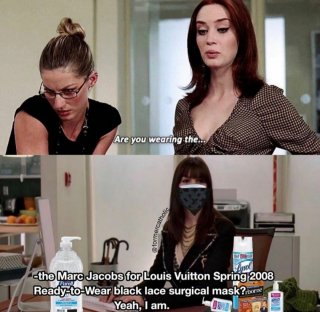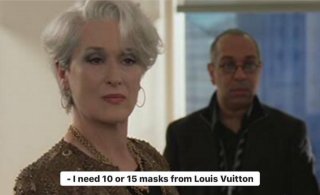Italy Shuts Down All Nonessential Commercial Activities
In the country, only food stores and pharmacies are allowed to operate until April 3.
MILAN — The coronavirus crisis in Italy keeps growing.
On Wednesday night, Italian prime minister Giuseppe Conte officially announced the closure of all nonessential commercial activities throughout the country until April 3. In particular, beginning Thursday, the only stores able to remain open will be food stores and pharmacies.
“If we all respect these measures, we will overcome this crisis faster. We are all part of a community of individuals and each of us have to do sacrifices now for the common good,” Conte said, highlighting that manufacturing companies will be able to continue operating in accordance with the existing safety measures.
The first request to adopt the drastic measure came from Lombardy region president Attilio Fontana, who sent an official letter to Conte on Wednesday morning.
“We are definitely close to the exhaustion of our resources. We are trying to do miracles to respond to the requests of health treatments, but if we don’t do something to invert the increasing number of patients, we will never be able to be as fast as the virus,” said Fontana on Wednesday during an interview with a local TV station. “We have to make sacrifices, we have to stay home, we have to be ready to renounce income, pleasant moments, everything.”
Before the measure became effective, a wide range of brands and retailers had already decided to close their stores in Milan as well as in other regions.
“In the city of Milan, about 50 percent of the commercial activities have spontaneously decided to shut down,” said Marco Barbieri, general secretary of Confcommercio Milano, Lodi and Monza and Brianza, the association that groups the company operating in the three provinces of the Lombardy region, said Wednesday afternoon. “Now the main goal for us is that the government support the companies we represent with the right measures,” he added, explaining that Confcommercio is asking for fiscal and financial support, including the rescheduling of loans, temporary tax suspension and the introduction of a monthly 500 euro allowance for freelancers.
Giorgio Armani was among the first luxury companies to close its flagships, hotel and restaurants in Milan on Wednesday, as well as Gucci which, the same day, shut its flagships in Milan and Venice.
Matteo Lunelli, president of Altagamma, the association that gathers 107 Italian high-end firms operating in the fashion, design, jewelry, food, hospitality and automotive categories, stressed that its companies are prioritizing the health of employees and customers, both at their plants and retail units, although the organization did not issue specific guidelines.
Lunelli — who’s also president and chief executive officer of Cantine Ferrari, a leading sparkling winemaker based in Trento, Italy — was adamant that “our companies will undoubtedly act in compliance with the measures issued by the government. Now that making forecasts is so difficult, it’s important to adapt to the directions of the institutions that are managing the crisis.”
“I see a strong cohesion among our companies and generally in the high-end sector but also on a social level…as people are becoming aware that this is a challenge for Italy, Europe and probably for the entire world,” he contended, hoping other countries, including the U.S., would face a more restrained emergency. In order to support its companies, Altagamma is collaborating with other institutions, including the Italian Camera della Moda and the European Cultural and Creative Industries Alliance, or ECCIA, which groups five European organizations active in those two fields.
Talking about the economic effect of the COVID-19 crisis, Lunelli said he expects “a significant but short-term impact. It’s a tough challenge but I keep thinking that the growing trend of high-end and luxury goods globally will bounce back once the emergency is over.
“The luxury goods sector is the first to be hit by a crisis like this one, but it’s also the first to react. The first half of the year might be compromised, but I hope the second part will show signs of recovery,” he noted, adding that the companies under Altagamma’s umbrella represent an “engine for the Italian economy, so it will be important for the sector to recover with enthusiasm.”
Before the drastic measure was announced by Conte, Italian department store Rinascente — which initially planned to restrict opening hours for its Milan and Monza flagships — decided on Wednesday to close until April 3 all of its nine stores in the country, which include units in Rome, Florence, Palermo and Turin, among others.
Coin also took drastic measures by closing all its stores, including 40 directly operated banners, three Coin Excelsior units in Milan, Rome and Trieste and a range of Coincasa home and furnishing flagships starting Thursday and until March 22. “It’s a precaution taken with the consciousness that this way we will be able to safeguard the health and safety of our employees and clients, with the conviction that we will contribute to shorten the time needed to overcome the issue,” said Coin’s president Giorgio Rossi.
Calzedonia Group has extended the closure of all its stores throughout Italy for its brands including Calzedonia, Intimissimi, Intimissimi Uomo, Tezenis, Falconeri, Signorvino, Atelier Emé and outlets. “Because we do not sell essential and basic goods, we felt it was right to do what is in our power to protect as much as possible the health of our customers and our employees,” said founder and chairman Sandro Veronesi.
Similarly, Benetton Group, which already implemented restrictions for its manufacturing activities by closing its plants in Ponzano Fabrica and Castrette, in the Veneto region, shuttered all its stores in the country for the United Colors of Benetton, Sisley and Undercolors of Benetton brands for two weeks.
“It’s necessary more than ever to work together. Institutions, enterprises and each citizen should join forces to face this emergency. We feel a strong responsibility as a company toward our employees, customers and their families. We’re strong and I feel confident about the future of Geox, our sector and country once this difficult period is over,” said Mario Moretti Polegato, president and founder of footwear company Geox announcing all its 150 directly operated stores across Italy will be closed through at least March 15.
To safeguard both employees’ and customers’ health, Aspesi also decided to temporarily shut down its stores in Italy beginning Wednesday.
“Now more than ever, we’re all called to act responsibly toward ourselves and the community,” said the company’s ceo Simona Clemenza. “The priority is to reduce the occasions of infection and, in sync with the direction suggested by the institutions, we have taken this decision: to stop now in order to restart as soon as possible with even more determination.”
Beauty-wise, Italian leading cosmetics label Kiko Milano shut all its 340 stores across the country until April 3.
According to a study conducted by Confcommercio, the coronavirus crisis, which is dramatically hitting the Milan area, which generates 10 percent of the country’s gross domestic product, is expected to cost Italy a loss of 15 billion euros this year.









